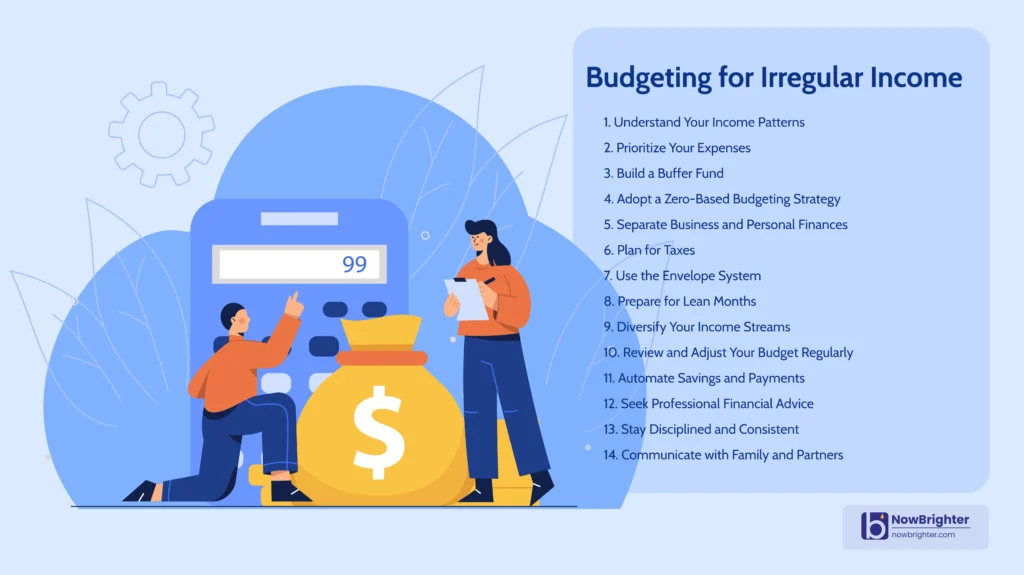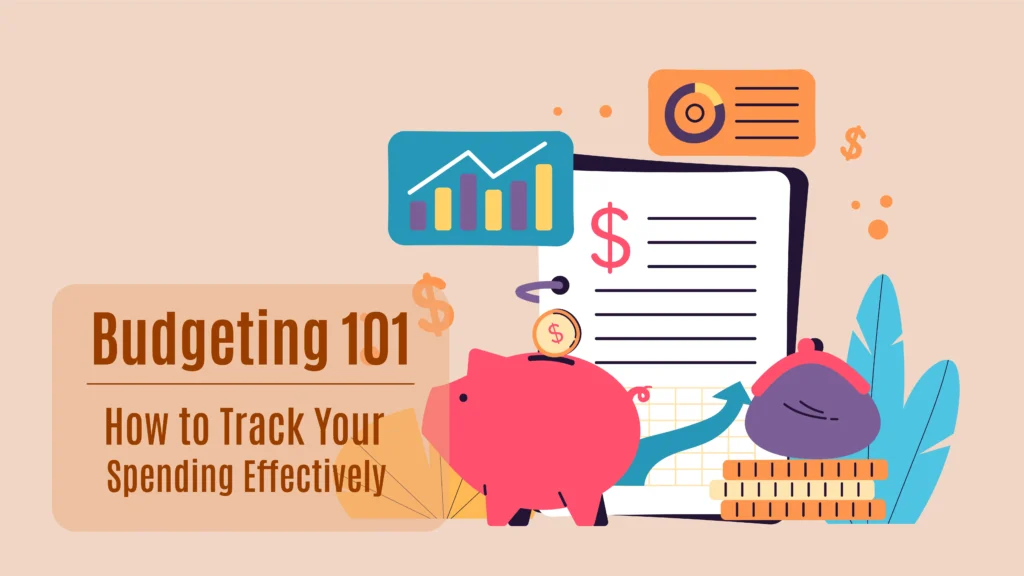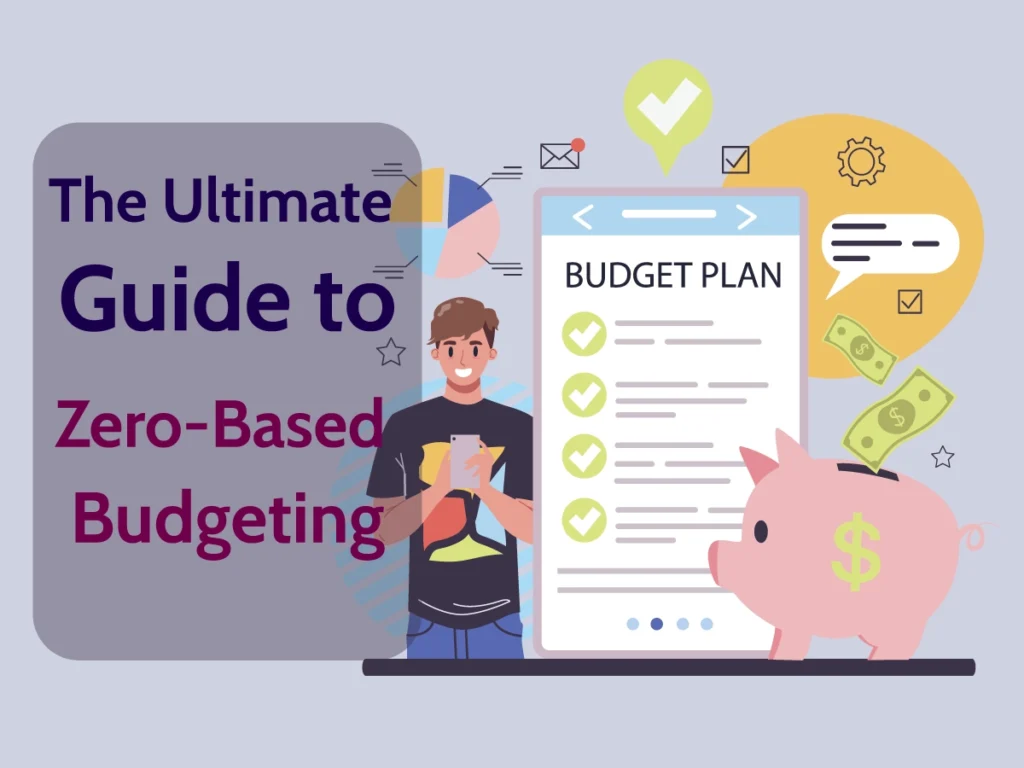Budgeting for Irregular Income: 15 Tips and Strategies
Living on an irregular income can feel like walking a financial tightrope. You might have months where the money flows in generously, followed by periods where the income trickles to a near halt. This unpredictability can lead to stress, financial insecurity, and the constant worry of whether you’ll be able to meet your financial obligations. However, with the right budgeting strategies in place, it’s entirely possible to create a stable financial plan that accommodates the ups and downs of your earnings.
As someone who understands the challenges of irregular income, I’m here to offer you practical, proven budgeting tips that you can implement today. Whether you’re new to budgeting or looking to refine your current approach, this guide will provide you with the tools you need to budget effectively, build a financial safety net, and achieve your financial goals, no matter how variable your income may be.

1. Understand Your Income Patterns
The first step in budgeting for irregular income is to understand your income patterns. Track your earnings over several months or even a year to identify trends, such as peak seasons or slower periods. Knowing when your income is likely to be higher or lower will help you plan more effectively.
Track Your Income Fluctuations
Keep detailed records of your income, noting the dates and amounts received. Over time, you’ll start to see patterns emerge. For example, if you’re a freelance graphic designer, you might notice that your workload increases around the holiday season but slows down in the summer. Understanding these fluctuations allows you to anticipate leaner months and save accordingly.
Calculate Your Average Monthly Income
Once you have a clear picture of your income trends, calculate your average monthly income. Add up your earnings over a year and divide by 12 to get a rough estimate of what you typically bring in each month. This average will serve as the foundation of your budget, helping you determine how much you can reasonably allocate to expenses, savings, and debt repayment.
2. Prioritize Your Expenses
When your income is inconsistent, it’s crucial to prioritize your expenses to ensure that your most important financial obligations are met, regardless of how much you earn in a given month.
Identify Fixed and Variable Expenses
Start by listing your fixed expenses—those that remain the same every month, such as rent, mortgage payments, utilities, and insurance premiums. These are non-negotiable and should be your top priority.
Next, identify your variable expenses, which fluctuate from month to month. These might include groceries, entertainment, dining out, and transportation costs. While variable expenses are necessary, they offer more flexibility and can be adjusted based on your income.
Create a Priority List
Rank your expenses in order of importance. Essential expenses like housing, utilities, and food should be at the top, followed by less critical expenses. This list will guide your spending decisions, ensuring that your most important needs are covered even during months when your income falls short.
3. Build a Buffer Fund
A buffer fund, or cash cushion, is essential when budgeting with irregular income. This fund serves as a financial safety net, allowing you to cover your expenses during months when your income is lower than expected.
Set a Savings Goal
Determine how much you need to save to feel financially secure. Ideally, aim to build a buffer fund that can cover at least three to six months’ worth of essential expenses. This might seem daunting, but by setting a clear goal and consistently saving, you can gradually build up your cushion.
Save During High-Income Months
Whenever you have a particularly lucrative month, resist the temptation to splurge. Instead, allocate a significant portion of that income to your buffer fund. By saving aggressively during high-income months, you’ll create a financial safety net that can support you during leaner times.
4. Adopt a Zero-Based Budgeting Strategy
Zero-based budgeting is a powerful tool for managing irregular income. This strategy involves assigning every dollar you earn to a specific purpose, ensuring that no money is left unaccounted for.
Plan for Every Dollar
At the beginning of each month, estimate your income based on previous earnings and any upcoming projects or contracts. Then, allocate that income to cover your expenses, savings goals, and debt repayment. The goal is to bring your budget to zero, meaning every dollar has a designated purpose.
Adjust as Needed
Because your income may vary from what you originally estimated, be prepared to adjust your budget throughout the month. If you earn more than expected, decide in advance how you’ll allocate the extra income—whether it’s boosting your savings, paying down debt, or treating yourself to something special. If you earn less, revisit your priority list and cut back on non-essential spending.
5. Separate Business and Personal Finances
For freelancers and entrepreneurs, it’s essential to keep business and personal finances separate. This separation simplifies budgeting, tax preparation, and financial planning.
Open Separate Bank Accounts
Maintain separate bank accounts for your business and personal finances. Deposit all business income into your business account, and pay yourself a regular “salary” from that account into your personal one. This approach helps you manage your personal budget without mixing it with business expenses.
Budget for Business Expenses
Just as you budget for personal expenses, create a budget for your business. Include costs such as equipment, supplies, marketing, and taxes. By planning for these expenses, you’ll avoid dipping into your personal funds to cover business costs, ensuring that both aspects of your financial life remain stable.
6. Plan for Taxes
When you have irregular income, it’s easy to overlook taxes. However, failing to plan for taxes can lead to significant financial stress when tax season rolls around.
Estimate Your Tax Liability
Estimate your annual tax liability based on your income from previous years. If you’re unsure, consult a tax professional who can help you calculate how much you should set aside each month or quarter for taxes.
Set Aside Money for Taxes
Each time you receive income, immediately set aside a portion for taxes. A good rule of thumb is to save 25-30% of your income for federal and state taxes. Deposit this money into a separate savings account designated for taxes to avoid the temptation to spend it.
7. Use the Envelope System
The envelope system is a traditional budgeting method that can be particularly effective for those with irregular income. It helps you control spending by allocating cash to different spending categories.
Create Spending Categories
Start by creating spending categories for your variable expenses, such as groceries, dining out, and entertainment. Then, label envelopes with each category.
Allocate Cash to Each Envelope
At the beginning of the month, determine how much cash you need to allocate to each envelope based on your budget. Withdraw that amount in cash and place it in the corresponding envelope. Once the cash is gone, you can’t spend any more in that category, which helps you stay within your budget.
8. Prepare for Lean Months
Part of successful budgeting with irregular income is preparing for the inevitable lean months when your income might not cover all your expenses.
Create a Lean Month Budget
Develop a “lean month” budget that accounts for the absolute minimum amount of money you need to cover your essential expenses. This budget should include only your fixed expenses and critical variable expenses, cutting out non-essential spending entirely.
Practice Living on a Lean Budget
Even during months when your income is higher, consider practicing your lean month budget. This exercise helps you identify areas where you can cut back and builds your confidence in living on a tighter budget when necessary.
9. Diversify Your Income Streams
Relying on a single source of income can be risky, especially when that income is irregular. Diversifying your income streams can provide additional financial security and help smooth out fluctuations.
Identify Additional Income Opportunities
Look for ways to supplement your primary income with additional revenue streams. For example, if you’re a freelance writer, you might consider offering editing services, selling e-books, or teaching writing workshops. These supplementary income streams can help bridge the gap during slower periods.
Invest in Passive Income Sources
Consider investing in passive income sources, such as rental properties, dividend-paying stocks, or online courses. While these investments require an initial outlay of time or money, they can provide a steady income stream that supports your financial stability.
10. Review and Adjust Your Budget Regularly
Your budget is a living document that should evolve as your financial situation changes. Regularly reviewing and adjusting your budget ensures that it remains effective in managing your irregular income.
Schedule Monthly Budget Reviews
Set aside time each month to review your budget. Compare your actual income and expenses to your budgeted amounts, and make adjustments as needed. If you consistently spend more in a particular category, consider reallocating funds from other areas or finding ways to cut back.
Set Financial Goals
As part of your budget review, set short-term and long-term financial goals. Whether it’s saving for a vacation, paying off debt, or building an emergency fund, having clear goals will motivate you to stick to your budget and make informed financial decisions.
11. Automate Savings and Payments
Automating your savings and bill payments can help you stay on track with your budget, even when your income fluctuates.
Set Up Automatic Transfers
Arrange for a portion of your income to be automatically transferred to your savings account each month. This ensures that you’re consistently saving, even if your income is irregular. If possible, set up automatic transfers for your fixed expenses as well, so you never miss a payment.
Prioritize Debt Repayment
If you have debt, automate your minimum payments to ensure you’re meeting your obligations. Whenever you have extra income, consider making additional payments to reduce your debt more quickly.
12. Seek Professional Financial Advice
When budgeting with irregular income, professional advice can be invaluable. A financial advisor can help you develop a personalized budget, plan for taxes, and create a long-term financial strategy.
Consult a Financial Planner
Consider working with a financial planner who specializes in irregular income. They can offer tailored advice on managing your money, setting realistic goals, and investing wisely.
Use Online Financial Tools
There are numerous online tools and apps designed to help you manage irregular income. These tools can assist with tracking your income, creating budgets, and setting savings goals, making it easier to stay on top of your finances.
13. Stay Disciplined and Consistent
Budgeting with irregular income requires discipline and consistency. It’s easy to fall into the trap of overspending during high-income months or becoming discouraged during lean periods. However, staying committed to your budget will pay off in the long run.
Avoid Lifestyle Inflation
One of the biggest challenges of irregular income is avoiding lifestyle inflation—when your spending increases in response to higher income. Resist the urge to upgrade your lifestyle during lucrative months and instead focus on saving and investing for the future.
Maintain a Positive Mindset
Financial management can be stressful, especially with an unpredictable income. Maintaining a positive mindset and focusing on your financial goals will help you stay motivated and disciplined.
14. Communicate with Family and Partners
If you share finances with a partner or family members, it’s essential to communicate openly about your budget and financial goals.
Hold Regular Budget Meetings
Schedule regular meetings with your partner or family to discuss your budget, review income and expenses, and make any necessary adjustments. Open communication ensures that everyone is on the same page and working towards the same financial goals.
Set Joint Financial Goals
Work together to set joint financial goals, such as saving for a down payment on a house or paying off debt. Having shared goals can strengthen your commitment to your budget and motivate you to stick to your financial plan.
15. Celebrate Your Financial Wins
Finally, don’t forget to celebrate your financial successes along the way. Whether it’s sticking to your budget for a month, reaching a savings milestone, or paying off a debt, acknowledging your progress is crucial to staying motivated.
Reward Yourself
When you achieve a financial goal, reward yourself with a small treat or experience that won’t derail your budget. Celebrating your wins, big or small, reinforces positive financial habits and makes budgeting feel more rewarding.
Reflect on Your Progress
Take time to reflect on how far you’ve come in your budgeting journey. Recognizing your progress will boost your confidence and encourage you to continue making smart financial decisions.
Conclusion: Taking Control of Your Financial Future
Budgeting with irregular income may seem daunting, but with the right budgeting strategies and budgeting tips, you can create a financial plan that works for you. By understanding your income patterns, prioritizing expenses, building a buffer fund, and staying disciplined, you can navigate the uncertainties of irregular income with confidence and peace of mind.
Now that you’ve learned these essential budgeting tips, it’s time to take action. Start by reviewing your income and expenses, setting up a budget, and building your buffer fund. Remember, the key to success is consistency and discipline. With determination and the right strategies, you can achieve financial stability and take control of your financial future, no matter how unpredictable your income may be.












